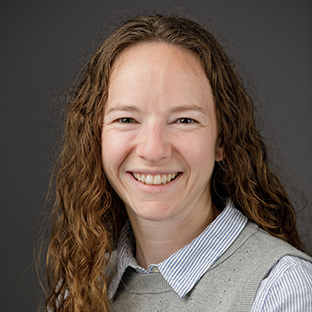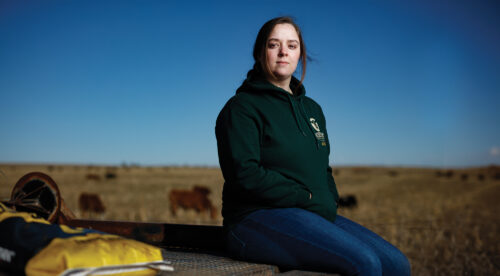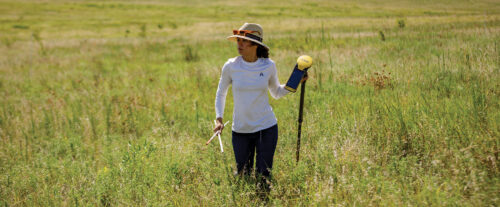Advocating for Change
The driving force behind Texas’s “Local Yocal” beef, barbecue and more spreads the gospel of sustainable, local food production.
When Matt Hamilton attended Oklahoma State University in the mid-1990s, his course on agricultural finance taught him a disappointing lesson. At the time, the national return on equity for farming and ranching was a meager 3-4%. He leaned over and said to a friend, “I can’t borrow money for that, so I guess we aren’t going back to the farm, are we?”
Throughout this childhood, Hamilton saw the challenges farmers and ranchers faced. Economic pressures and changes in government programs that might have been well-meaning ultimately forced many multi-generation farms to be sold at auction for pennies on the dollar of what they were worth. The chip on his shoulder grew when he graduated from college and worked for an agricultural chemical company.
“The company I worked for at the time made a glyphosate product for a large ag chemical company,” says Hamilton. “And I’ll never forget learning that we were making this product for $2.50 a gallon in our manufacturing plant, selling it to that company, who sold it back to our distribution division for $45 a gallon. Then we sold it to farmers and ranchers for $55 to $60 a gallon.”
Hamiton couldn’t believe what he heard. He pictured the farmers and ranchers he grew up with struggling to survive while C-suite executives at big chemical manufacturers got rich. He left the industry and worked in construction, tractor sales, then bioremediation, while also running one of his family’s farms on evenings and weekends.
Despite leaving the chemical industry, the chip on his shoulder never melted. His desire to return to agriculture and make an impact on the community bubbled under the surface. During the 2008 recession, Hamilton hatched a plan. He thought he could overcome traditional farm economics by selling regenerative, grass-fed beef directly to local consumers.
“My wife and I are high-capacity people. As a high-capacity person, I get bored with one thing. So obviously I spin off these other things,” Hamilton says, explaining how his market stand blossomed into Local Yocal, a regionally renowned grass-fed beef processor and wholesaler for some of Texas’s best restaurants and barbecue joints. “I like diverse business challenges. It gives me new things to learn.”
In addition to the wholesale market, Hamilton’s enterprises in McKinney, Texas, include a retail butcher shop, a restaurant, a western goods store and his popular Steak 101 course that breaks down 18 cuts of meat along with myths about the beef industry.
“Along the way, God made clear to me that full-time ranching is not in the cards for me. He had something else planned. A lot of people can raise calves, but not a lot of people can reach the consumer. Not a lot of people can talk to other farmers and ranchers or industry groups,” says Hamilton.
He’s in a position to bridge the gap between ranchers, industry leaders and consumers. And with a career of sales presentations behind him, Hamilton’s equally at home in a paddock sorting cattle or in his restaurant explaining what ‘regenerative grass-fed’ beef is to customers over a LoYo Burger.
It’s this particular interest – moving the industry forward through more regenerative methods – that caught the attention of Noble Research Institute. And vice versa.
Sharing a Passion for Regenerative Ranching
A few years ago, Charles Rohla, a regenerative ranching advisor at Noble, called Hamilton to ask a favor.
“We’re changing direction. Are you familiar with regenerative ranching?” recalls Hamilton of the original conversation. He’d never heard of regenerative ranching per se, but as Rohla continued, Hamilton realized it encompassed everything he’d been trying to do from Day 1.
When Rohla asked him to be on Noble’s advisory panel, Hamilton didn’t have to think about it too much. He said yes.
“To be a part of supporting the mission that Noble’s after – the acres and the people that we’re looking to transition in the next 10 years. To be a part of bringing regenerative ranching into a mainstream forum. And if that can impact families who produce food and families who consume food, then that’s a success for me,” Hamilton says.
Hamilton has a heart for farmers and ranchers. As a kid, he watched as friends and neighbors fought to keep their farms and ranches afloat. He knows it’s a labor of love for every farmer and rancher. But he’s also heard dozens of stories from customers about the impact his meats have had on their health.
“When it gets really tough and you’re thinking ‘is it worth it?’ I remember these people come in and they tell you about how the food has impacted them. They show you the weight they’ve lost, or that they no longer need medications,” says Hamilton. “It’s made a monumental difference to them just having a store where they can buy trusted products.”
Hamilton’s never lukewarm on a subject. If he’s going to invest his time and energy into something, he’s going all in. That’s been his approach with Noble, too. He serves on the advisory panel but also supports Noble’s mission through financial contributions. He leverages his Local Yocal storefront as a space for like-minded ranchers to gather for learning sessions and even hosted a recent Noble Profitability Essentials course.
“We’re not going to wave a magic wand all the sudden, boom,” says Hamilton with a wave of his hand. “It’s going to take a lot of people turning the wheel in different places to turn around American agriculture.”



Comment